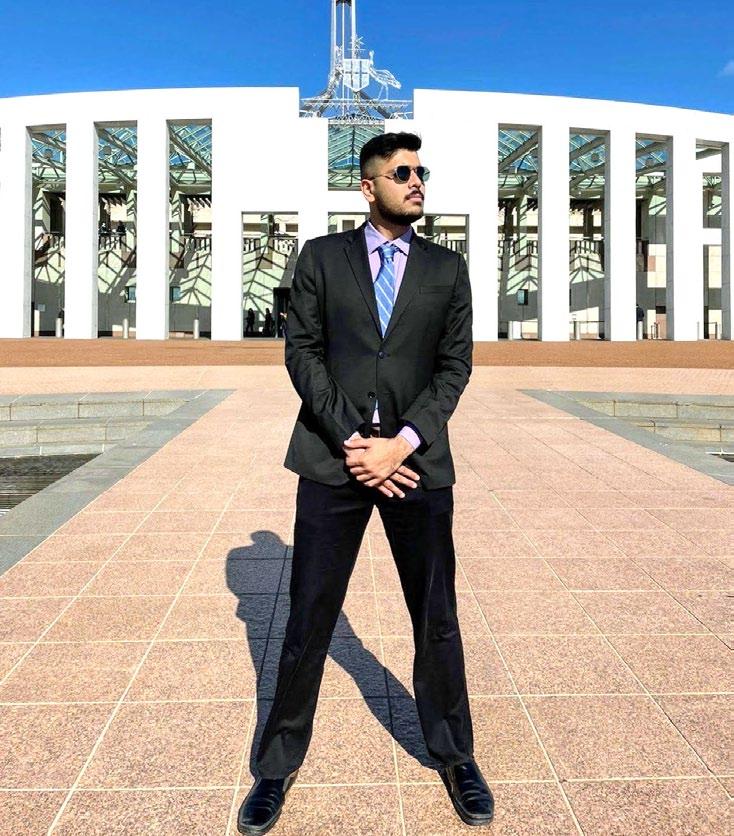
1 minute read
Giving Indian international students a voice
from 2022-06 Sydney
by Indian Link
Karan Mehta, chair of the Indian Students’ Association of Victoria, describes achievements as well as challenges in representing international students
universities across Victoria met at the governor’s house.
“We realised that there existed a huge gap in the representation and advocacy for our Indian student community,” Karan recalled.
The non-profit organisation now registered under Consumer Affairs Victoria collaborates periodically with nine major Indian Clubs from Australian Universities including Monash, RMIT, Deakin – Geelong and Burwood, Melbourne University, Victoria University Swinburne and Latrobe.
The key players involved in ISA are past or present international students, who have foundational knowledge and first-hand experiences in the aspects of employment, permanent migration, and student rights. Support from community platforms and from Indian government bodies are also doing their bit.
“We believe that cross-unit collaborations, the executives and individual support from our affiliated members are the driving force behind ISA,” Karan added.
With the Indian student numbers growing so strongly, it was a matter of time before they organised into a forum like the ISA.
“It would not be completely wrong to say that Indian international students today are fighting a battle to revive their identity as a community,” Karan noted. “Right from retail and hospitality to white-collar jobs, we contribute our best to run the economy.”
The international education sector contributes more than $40 billion to Australia’s economy. Recent figures show that India remains the second largest source of international students, with nearly 70,000 enrolled in Australian universities as of 2022.
Upcoming Challenges
Karan sees the role of the ISA extending beyond university.
“Thousands of Indian students come to Australia every year, a large chunk of who aspire to settle here permanently. However, the road to permanent residency is not that easy,” he explained.
“If we look at the concept of ‘skill assessment’ for instance, they are directed to take the assessment to prove that they possess the required skill for the occupation one applies for. Why do I have to give another exam to prove the legitimacy of my learning, after graduating from a certified Australian University despite my professional experience? Why is there a cost associated with it? These are some of the questions we are yet to seek a response for.”
It seems the Indian Students’ Association of Victoria is quickly headed towards becoming a one-stop platform for all Indian students, giving them their ‘home away from home’.









